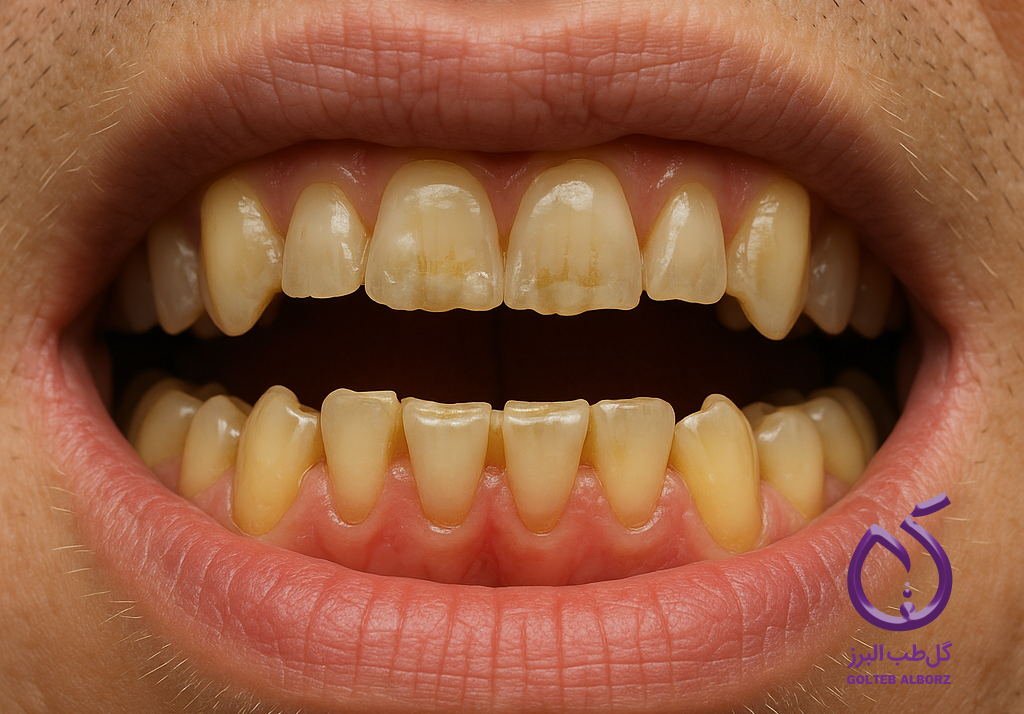Bruxism
2025-04-07 16:20:18

The Impact of Teeth Grinding on Dental Health
Bruxism, commonly known as teeth grinding, is a widespread condition that, if left untreated, can cause serious damage to teeth, the jaw, and even facial joints. Many people unconsciously clench or grind their teeth during sleep or periods of stress. In this article by Gol Teb Alborz Dental Equipment Company, we provide a comprehensive review of how bruxism affects oral health and what can be done to prevent its consequences.
What is Bruxism?
Bruxism refers to the involuntary clenching or grinding of teeth, often during sleep. However, some individuals may also experience it during the day, especially in stressful situations.
Common Symptoms of Teeth Grinding
-
Jaw muscle pain or tightness
-
Morning headaches
-
Worn tooth enamel
-
Chipped or fractured teeth
-
Clicking or popping sounds in the jaw joint
-
Receding gums and tooth sensitivity
How Teeth Grinding Affects Dental Health
1. Worn Tooth Enamel
Bruxism gradually erodes the protective enamel on teeth, leading to increased sensitivity to hot, cold, or sweet foods and a higher risk of tooth decay.
2. Cracks and Tooth Fractures
The excessive pressure caused by grinding can lead to cracks or fractures, requiring restorative treatments such as dental crowns.
3. Temporomandibular Joint Disorders (TMJ)
Bruxism can lead to inflammation and pain in the temporomandibular joint, potentially resulting in jaw locking, clicking, and limited mouth opening.
4. Changes in Facial Appearance
Long-term teeth grinding can shorten teeth and alter the appearance of the face, often causing premature aging of facial features.
Causes of Teeth Grinding
-
Stress, anxiety, or emotional tension
-
Sleep disorders such as sleep apnea
-
Misaligned teeth or jaw abnormalities
-
Genetics and family history
-
Excessive caffeine, alcohol, or stimulant use
How to Prevent and Treat Teeth Grinding
✔ Night Guards
Custom-made night guards, provided by dentists, are one of the most effective ways to prevent further damage from teeth grinding.
✔ Addressing Underlying Issues
If dental or jaw misalignment is the cause, orthodontic treatments or restorations may be recommended.
✔ Stress Management
Techniques such as meditation, exercise, listening to music, or seeking counseling can help reduce stress and lower the risk of bruxism.
✔ Lifestyle Changes
Limiting intake of caffeine, alcohol, and tobacco—especially before bedtime—can significantly reduce the frequency and severity of grinding.
Conclusion
While teeth grinding may initially seem harmless, over time it can seriously affect oral health, jaw function, and facial aesthetics. Early diagnosis and dental consultation are key to preventing long-term damage. This article was prepared by Gol Teb Alborz, a specialized dental equipment provider, to raise awareness about the importance of oral health and proper dental care.
Latest Articles
Ora-Aid oral adhesive – overview & benefits video
Read more
C-Root SP bioceramic sealer – intro & key benefits video
Read more
Introduction of the M3 brand products from Gol Teb Alborz
Read more
Platelet-Rich Plasma (PRP) and Its Role in Dental Surgery
Read more





